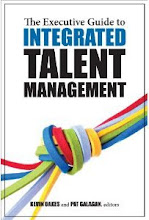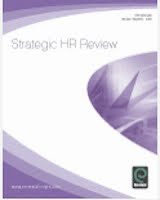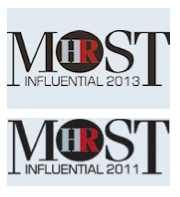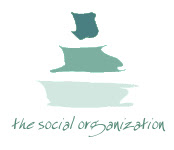 This is a continuation on my thoughts following last week’s Social Learning Zone webinar (see part 1).
This is a continuation on my thoughts following last week’s Social Learning Zone webinar (see part 1).
Why is it important?
This is about low cost and high capability development, given the need for emotional / social context, and organisational as well as individual learning (shared mental models etc).
As I explained, I think the word and idea behind the work, ‘social’ are important, and I think organisations need to be comfortable to use this (see this post – don’t get made sick by the social).
I liked the tweet from Martin Couzins referring to Dave Weinnberger’s quote which explains the ‘why’ of social learning: ‘knowledge isn’t in our heads, it is between us’.
I do agree with Abi Signorelli and Jenni Wheller that other changes like remote working and Gen Y are enablers, but I don’ think they're the main drivers / benefits of this.
The Gen Y point reminds me of Fons Trompenaars international cultures work where he suggests that if you take any particular trait, the difference within one group is always going to be greater than the difference between groups. Ie there’s probably more or as much variation within the Gen Y population than there is between the average usages of Gen Y vs other generations.
How can we use it?
My suggestions were those from the slide above.
But I also liked Abi’s suggestions to create social spaces in every office whether people can socialise and learn using offline and online methods; and also of internet cafes – shareable PCs set up as a social learning zone (sort of what I think SHRM are doing at their annual conference with a Social Media Room).
What does this mean for HR / L&D?
We had to skip over this quite fast. The point I wanted to make is that I think social learning requires a move towards L&D being a strategic partner vs a designer and deliverer of learning. I thought Dhruv Devasher summed it up quite well – the role involves facilitating and supporting the exchanges, maintaining the tools, capturing, codifying and disseminating pockets of shared knowledge / technical knowledge too.
Of course, that’s been the direction of travel for some time, but most organisations haven’t made much progress. Social learning is going to reinforce the need to make this journey, and to quicken progress.
Read Dan Pontefract’s remarks on my recent live blog from last week’s social learning session in Boston, and also Dan’s follow-up about the need to bring together HR and IT.
Implementation
This wasn’t something I addressed specifically, but came through as an important focus for people from many of the tweets.
Because, given everything I described and have reviewed above, and as Julian Summerhayes noted: if there’s so much power with social media, and with the £ crisis, you wonder why more people are not using it to deliver training (and enable learning). Good point.
One problem is very practical- eg Alana Inness asked how do we get round the challenge of staff who don’t have internet access in their work place – eg bank cashiers, call centres? And another question from Michelle Kaye was how do you get round companies block on games / virtual worlds?
To me, this is about focus and ambition. Do you want to do social or not. If you do, you’re not going to ban access to games, and you’re going to find a way to give your cashiers access (like how McDonald’s put a PC in every restaurant, or ASDA in every store).
Ken Moir raised another good challenge to social learning: How to address audience expectations of a ‘sage on a stage’? Upending the passive content intake model can generate active resistance.
I think this one is more about culture than strategy, but a lot of it depends on the same thing – on an understanding and commitment to social. Helping people understand that this is valid and important.
And there was another interesting exchange between Ken and Dhruv:
Ken: Is free & open sharing a realistic expectation of real, emotional human beings interacting in stressful / competitive environments?
and: Lack of trust is a universal obstacle to social media use. In fairness, the odd loose cannon can do ‘massive’ damage.
Dhruv: Should an organisation exert control to prevent loose cannons and does that hurt the platform?
In my view, keeping things too tight will will hurt the platform. You don’t want to make people question using the technology (apart from clearly inappropriate comments).
I was asked a similar question at my Kenexa presentation recently. I responded to this by thinking back to a discussion at Informatology where someone made the point that we trust people when we recruit them (or we wouldn’t do so – hopefully), so why can’t we treat them as adults after they join? I talked about BT and AXA and how these companies have found they’ve needed to take very little disciplinary action around the use of social media. However, I was reminded afterwards that the point I should have as well was that most effective communities are self correcting – that the community will respond to loose cannons. The organisation / community manager won’t normally need to be the one to do this (also see my recent Social Advantage post on Community).
And Ken raised yet another good point – that formal training’s easier to administer, control and measure than social learning – that’s why HR likes it. I mentioned this one in the webinar. I think it’s sad. But true.
I also liked Alana Inness’s question: will we lose skills required for face2face interaction (eg negotiation, differences resolution etc) with more reliance on 2.0 tools)?
My view – I don’t think we will. Partly because I think 2.0 interaction leads to increased f2f interaction, rather than the reverse ( a point I’ve made on Abi’s post about Introversion / Extroversion in 2.0). And secondly, because of a point made by JP Rangaswami from BT Design at last week’s E2.0 conference: that while increased use of social media my reduce individual skills (make people dumber), it increases the skills of the organisation as a whole. (Abi, sorry I didn’t come back to you on this again – I’m not sure about the original research.)
There were other points too. Culture was raised a lot. Strategy too (Julian: don’t we need to consider what the strategy is before just worrying about the tools?). Yes. But these are separate webinar subjects I think!
That’s your lot. But thanks very much for all the tweets (and comments on Citrix I still haven’t seen – other than those Verity read out). They’re all highly valued – by me and by others too (eg Debbie McNamara’s tweet: Can’t be on the webinar but getting lots of good information from the feeds! Isn’t that working the talk!).
And it would be good to hear your further thoughts – do comment below.
- Consulting - Research - Speaking - Training - Writing
- Strategy - Talent - Engagement - Change and OD
- Contact me to create more value for your business
- jon [dot] ingham [at] strategic [dash] hcm [dot] com
.





























0 comments:
Post a Comment
Please add your comment here (email me your comments if you have trouble and I will put them up for you)